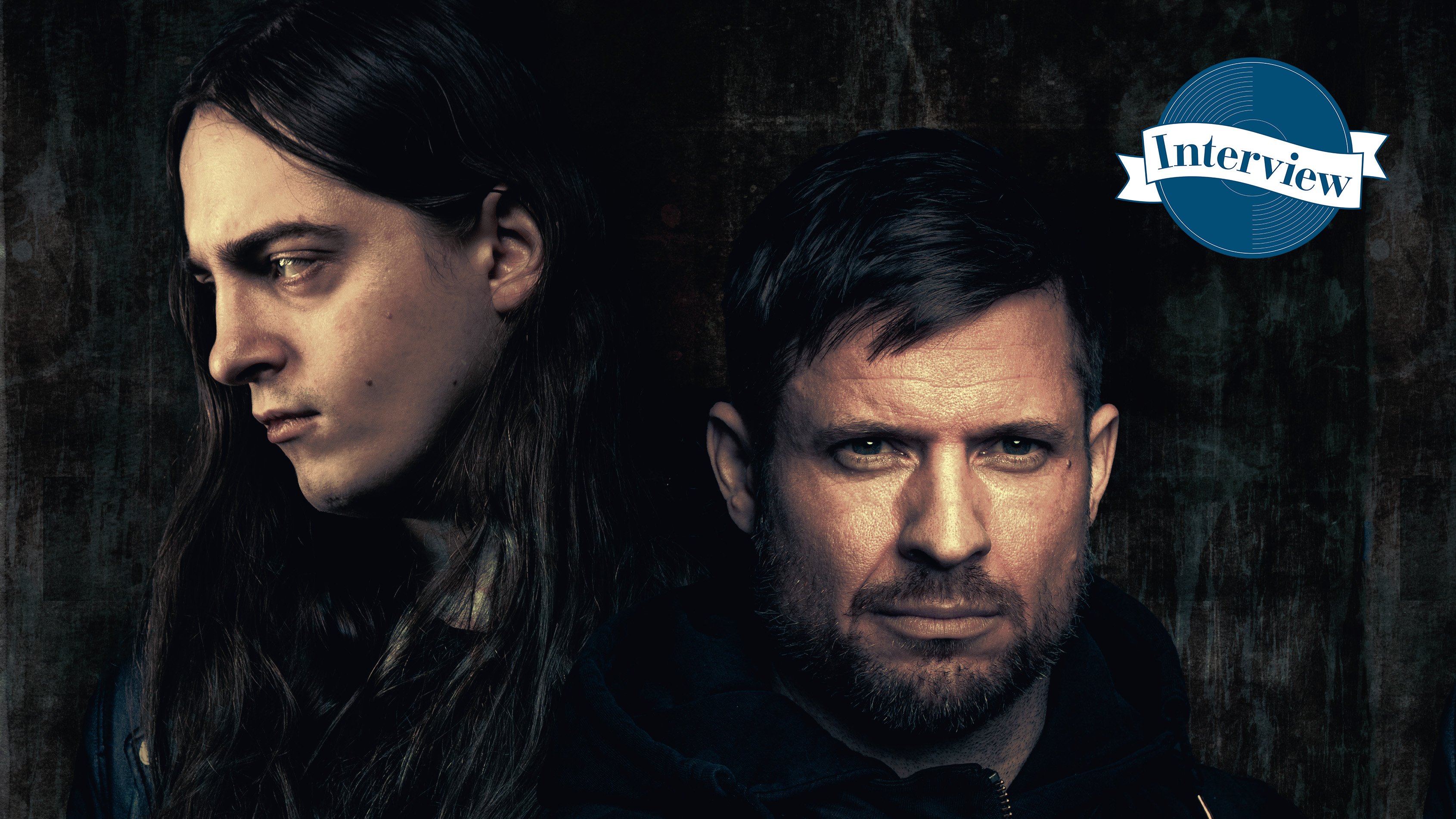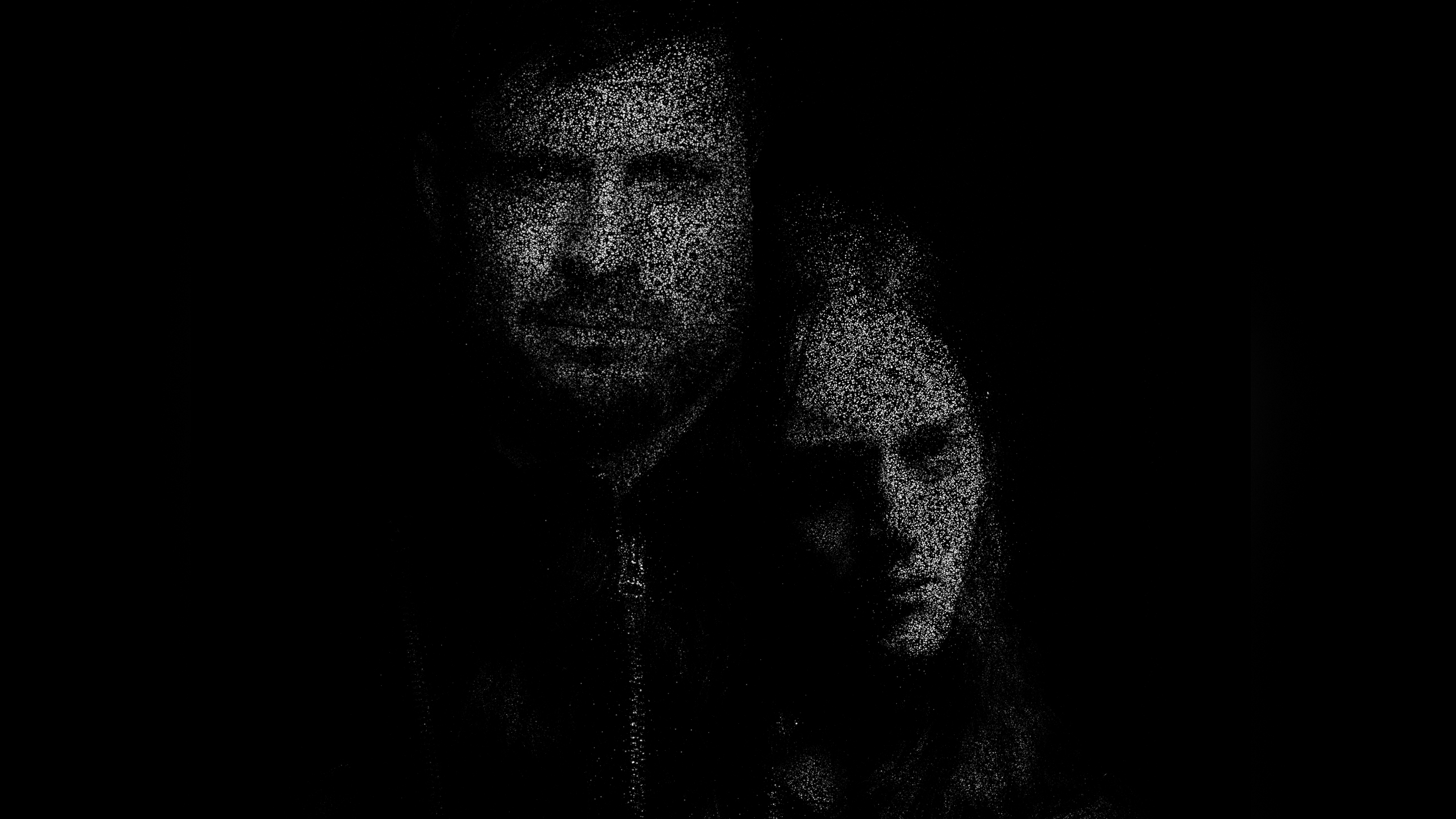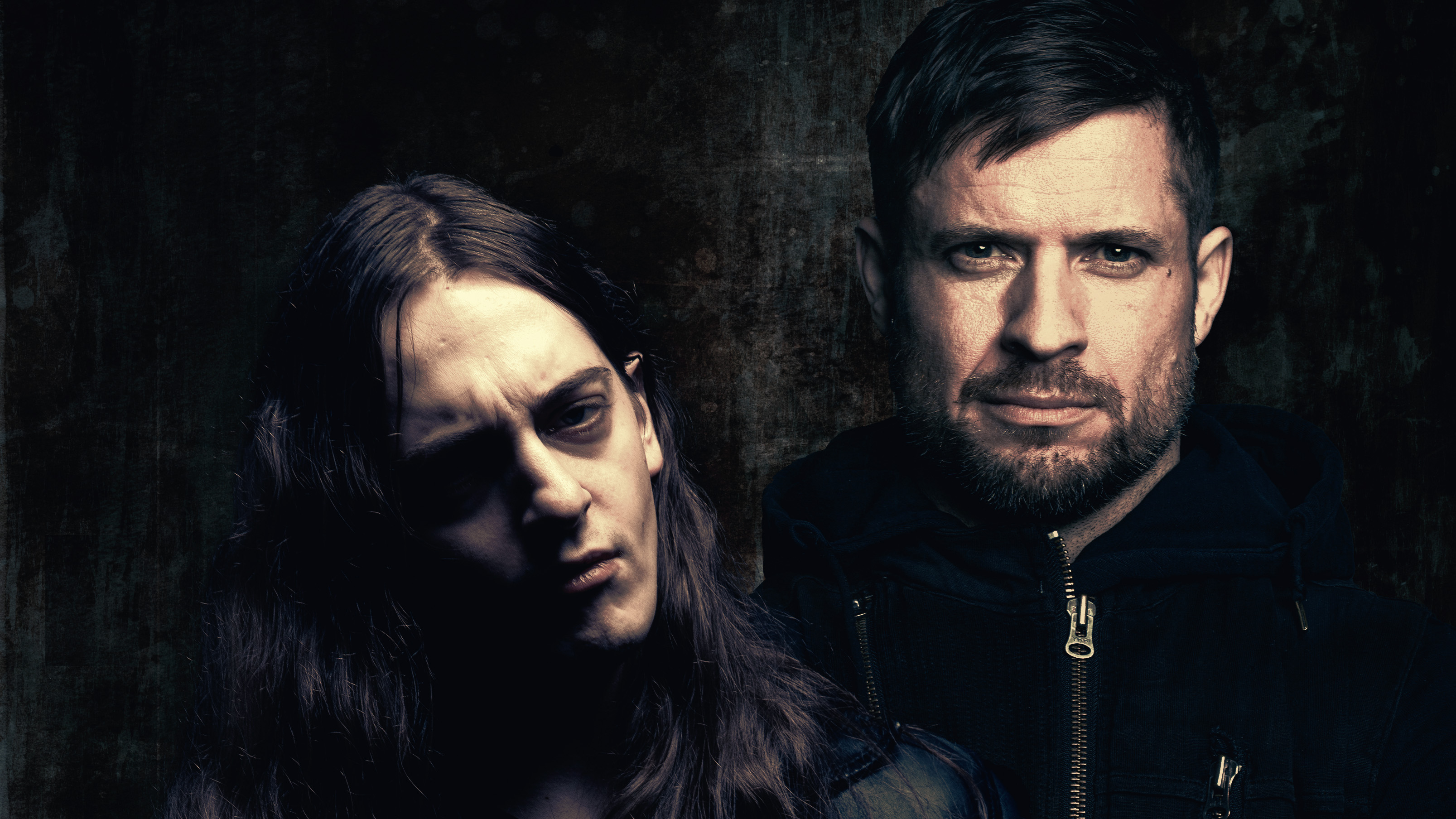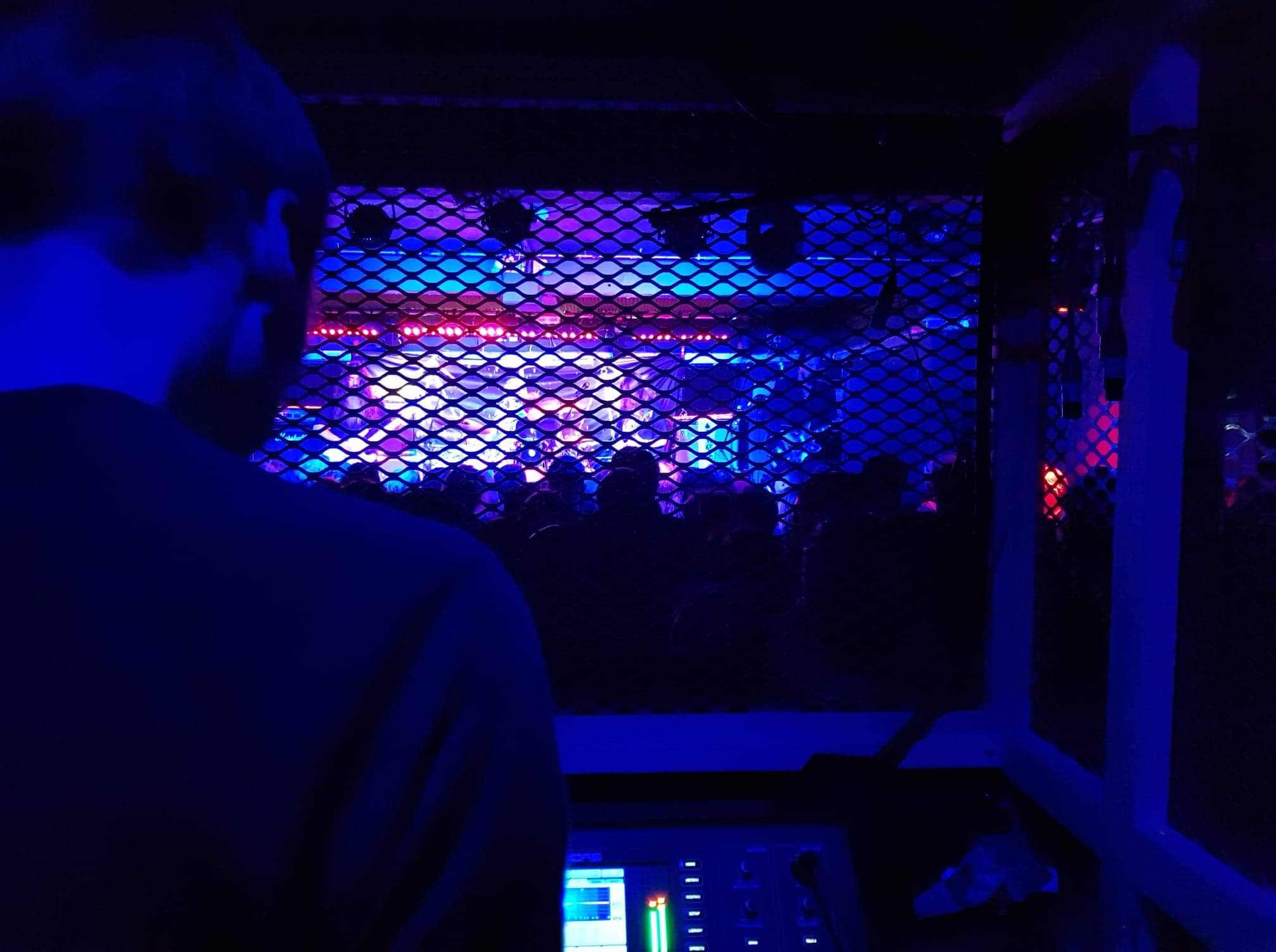Interview: Perturbator's James Kent and Cult Of Luna's Johannes Persson on their synth / guitar post-metal crossover Final Light
"Rather than trying to redefine what we do individually, we put our strengths together"

Johannes Persson and James Kent are two titans of their respective genres. Johannes' bellowing vocals and dense riffing is the foundation on which Swedish post-metal band Cult of Luna's crushing sound is built, and James as the sole mastermind behind the dark, horror infused synthwave of Perturbator.
Back in 2019, the pair were announced for a special collaborative performance at the legendary Roadburn Festival in The Netherlands – a boundary-pushing event that is known for facilitating collaborations and commissioning their artists to come up with special, one off performances.
Whilst such a pairing may seem unusual on a surface level, both artists have a longstanding friendship and a musical connection that transcends their initial differences. The work they created together – which has been released as an album entitled Final Light - is a meshing of dark industrialised synthwave and intense post-metal. A cinematic quality flows through both of their respective outputs, and that quality is used to neatly link together their contrasting styles and bring everything together.
MusicRadar caught up with both Johannes and James a few days after the album's release to discuss how Final Light was enabled and created, how technology played an important role and whether or not we're likely to see a further expansion of this project.

Now that the album has been released, how are you both feeling about it?
James: "It feels great, really good. We've been working on it for so long - for years now - that it's good to finally see the reaction of people and know that it was finally worth the effort. It also feels good to be able to turn the page and to be able to move on and work on something else.
"I'm the kind of person that needs to release something in order to be able to move on from it. I have a difficult time working on multiple projects at the same time."
Want all the hottest music and gear news, reviews, deals, features and more, direct to your inbox? Sign up here.
Johannes: "Usually when you record an album, you have a waiting period of a couple of months where you just can't wait to get it out, but this one has dragged on for such a long time that it almost didn't matter whether it was going to be released in one year or two years. But like James said, it's almost always a relief to have your stuff out there. I'm not saying I'm ready to be leaving it behind, but you can start looking forward again once an album is out."
"When it comes to the reactions, I've been so busy that all I've really seen is the reaction of people on social media which has been very positive, but on the other hand you never really know. Of course the people who actually like it will tag you and mention you, but the people who don't won't bother."
Going back to the start, when did you first become aware of each other's work and how easy was it to say yes to a collaboration?
Johannes: "Again, I'm not really sure when I was first presented with James' work. I'm fairly sure it was through my friend and Manager Alexis Sevenier. He first suggested James do a remix of one of the Cult of Luna songs we did with Julie Christmas. I'm not really a fan of remixes at all, but James took it and did something completely different with it. It didn't sound like a remix, rather an entirely new song and I was super impressed with that."
"I went to a Perturbator show in Stockholm as a fan, and was on my way out when his Merch guy recognised me and asked me to meet with James. We hung out backstage, had a really good time and basically drank until I got thrown out! So when I was asked the question about collaborating with James for Roadburn, I said yes immediately. I enjoy him as a person and I enjoy his music, so why not?"
James: "As for me, I discovered Cult of Luna before I even started Perturbator. I was a fan as a teenager, I think they'd just released Eternal Kingdom when I discovered them. I remember my manager saying there was a chance I could work on a remix for a Cult of Luna song and that was super exciting.
"Johannes and I quickly realized that we had a lot in common musically. When I was asked to do a commission piece for Roadburn, I immediately thought of Johannes."
Typically there is a time pressure involved when you are doing a Roadburn commission, but this was originally going to happen at the 2020 edition of the festival which never came to pass. How did that extra time to work or finish on the project impact the final result?
James: "The extension was really good for the project because it allowed us to fine tune the music further. When we started these tracks, they were.... I wouldn't say raw, but we had certain constraints and we needed to write them fast. The tracks were not super fleshed out and were more like blocks of strong ideas.
"During the pandemic, I revisited the tracks and we began to add more polish to them. It's mostly production stuff and with little arrangements, but I think it is those little details which really make the whole thing better. The devil is in the details, I have to say."
One of the philosophies of Roadburn is "Redefining Heaviness" - It explores and celebrates all forms of heaviness in music and not just in the traditional metallic sense. How important was that for you when creating Final Light?
James: "It was more along the lines of thinking we should just do what we do best, and that would be enough. Rather than trying to redefine what we do individually, we put our strengths together.
"I do like to make something new, but I felt for this specific commission piece it was wiser to take a simpler approach to make it sound more like what a collaboration between Johannes and myself would sound like. The early demos for this were essentially me trying to make a Cult of Luna track but with synthesizers."

I used some of his riffs and guitar parts as a basis for entire songs
James Kent
So did the ideas typically start with you or Johannes? Or more of a mixture?
James: "I'd say that I wrote most of the initial tracks, but Johannes gave me some riffs to work with when we were in rehearsals. I used some of his riffs and guitar parts as a basis for entire songs."
Johannes: "I think that you wrote two or three tracks at first that I did my thing over, but then at the first rehearsal I just pulled out some riffs that i'd been working on, and wasn't sure if they'd ever end up being used for anything. When we came back, James had turned them into entire songs. As a fellow musician, I must say it is very impressive to see that small amount of an idea turning into something that big. So yes, it is all thanks to James.
"I think one of the most interesting tracks from my perspective is Ruin To Decay, which started off as a single riff that I wrote and then James did his stuff, and then I added some more to that. I think that is the kind of collaboration which is most fruitful. Kind of like that old cliche of the end results being greater than the sum of its parts. That kind of collaboration is a real collaboration.
"A lot of stuff that i've done with Cult of Luna has been inviting other artists to do their thing, but it's more like they are adding their unique voice or parts to what we already wrote. I'm not valuing one approach over the other."
How did technology enable the writing and recording of Final Light? With you both being in different countries and having multiple projects going on, not to mention the pandemic stopping people from assembling, how did you use technology to your benefit and what piece of tech was most important?
James: "It was more than just important, I would say it was essential. Most of the tracks I made on a computer using my software (Note: James uses Ableton Live 11 as his DAW). All of the recording, mixing and mastering is done like this, so it was essential. We wouldn't have been able to do it without the means that we have now. Being able to record at home and send guitar and vocal parts via the internet, it is kind of what made it happen."
I was in attendance for Roadburn – Right down the front actually! I notice you performed live with two drummers, but the album primarily has synthesised drums. How did this decision get made and what benefits did it bring?
James: "For the live performance we knew that it would be my drummer Dylan (Hyard) would be doing it. I really like his play style, he's a good drummer and what I call a good mercenary – you give him a part with a click track and he can do anything over it.
"The idea of adding the second drummer came from one of the tracks. We used an acoustic drum sample, and I thought it would be cool to have an acoustic drum kit too. Rather than have Dylan move from one drum kit to another, it would be good to have two drummers. That track also got changed during the studio and it's basically a drum machine on the whole thing. The live drums really made it sound pretty massive.
"The rehearsals that we did with Mehdi (Birouk Thépegnier of Hangman's Chair) and Dylan just felt so right, and like it was the perfect balance between two drummers. When they are separated and also when they come together at a crescendo to hone in on one riff, that was a really important element and we didn't want to change that."
Johannes: Dylan and Mehdi added not only something significant to the live performance but also they were super nice people to hang out with."
There's a very visual quality to the album. The songs are long and have an almost cinematic quality to them. Are you quite visually minded when you write this sort of music?
Johannes: "That's something we started off talking about that pretty early."
James: "Yes, we were trying to figure out something pretty early – maybe a logo that could be displayed with visuals for the hour long duration of the set time we had.
"There was a point where we were almost more concerned about the visuals than the music because we were feeling very confident about the music, but visuals were going to be important for the live part."
Johannes: I am always nervous when it comes to artwork and visuals, because like James says, the music, I know. We know. That's something that I have control over. But even though I usually work with the same guy, Erik [Oloffson, former Cult of Luna guitarist] and he knows the band better than anyone, this time, we had to start from scratch. We had no visual identification or anything like it.
"First off, we had to decide what we wanted to communicate with the music, and how we could apply that to the artwork and the visuals. Then we had to find someone who could actually do that. I'm really happy with how it turned out."
James: "Same. I remember we mostly wanted to have something that looks like both of our respective identities. It needed to be a beautiful abstraction of a Cult of Luna cover, but also a digital cyberpunk aspect of a Perturbator cover. And I think it is the best of both worlds."
With James, it has been so smooth and easy going so I would love to continue this
Johannes Persson
Final Light was initially meant to be a one-off live performance at Roadburn festival, but it turned into a full album. Do you think you'll do more work together in the future?
James: It's not necessarily done. It's something I would like to revisit and work on more, but as we always say it is a matter of scheduling for both of us. We're both very busy and have a lot on our plates. Johannes is working on a movie, we both have a shit ton of shows to do with our own projects but Final Light is definitely a project I would like to come back to. Whether that's another show or even making more music together, that'd be nice.
Johannes: Yeah, again... You could just copy and paste James' answer for me too. It has been a pleasure working with James as a writer and from my perspective it went very smooth.
"There was another thing, even though you met a person and really like them, you never know how things will work out creatively with them. With James though, it has been so smooth and easy going so I would love to continue this. But as he says, it is about scheduling. Years pass so quickly, so who knows what will happen? If the stars align, I would love to do it again."
Final Light's self-titled album is out now. More info at Bandcamp.
Sam Drower is a sound engineer, musician and all-around music junkie based in Bristol, UK. He began contributing to MusicRadar in 2020, when the global pandemic brought live music to a screeching halt. When not behind the mixing desk for various bands, he is playing bass for blackened mathcore group Host Body.
